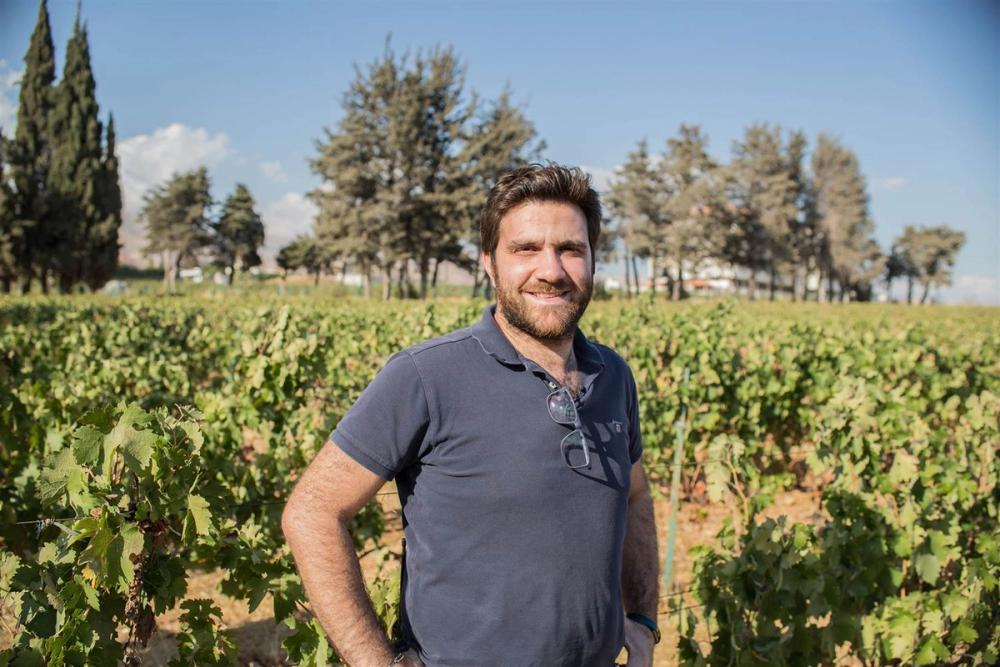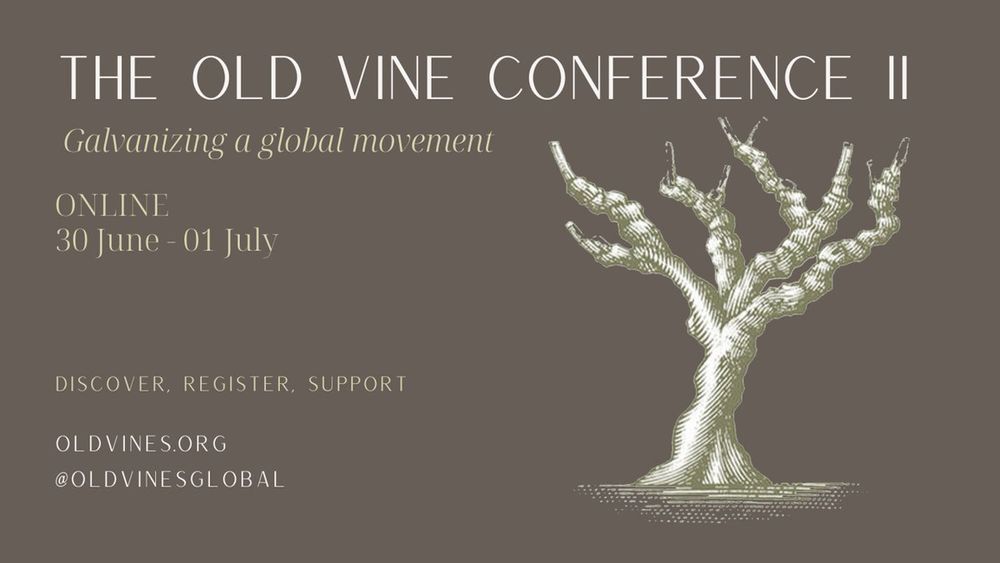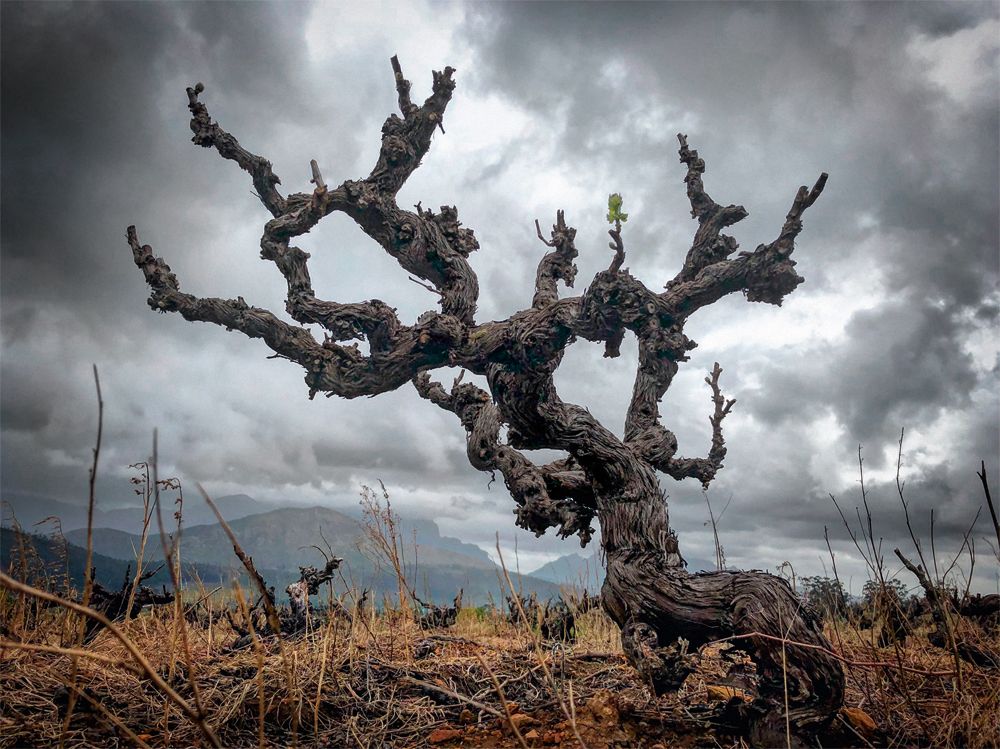The second Old Vine Conference takes place online on June 30 and July 31. You can find out who is taking part and how to sign up here.
You are about to run your second Old Vine Conference this week. Before we get into that can you explain what the project is and how it came about?
We need to build a wine category for Old Vine wines. We want The Old Vine Conference to be the seed for a global community that sustains and communicates the value of heritage old vineyards. These vineyards represent agricultural wisdom, genetic diversity, community heritage, and a kind of uber-terroir. And they give wines of unique interest, nuance and complexity. But we are losing them because they can’t be made to pay.
The Old Vine Conference seeks to change that. It came about through conversations I had with several colleagues in wine media, import, and marketing. We realised that although great old vines are revered by many leaders in our industry, their multifaceted value was not recognised by the majority of consumers, or even by many in the trade. So we founded a non-profit to address that.
So this is an international initiative trying to link old vine projects around the world?
Yes. The model is informed by my experience in collective marketing for generic bodies (which is my day job). You have to create a category through awareness, storytelling, and then real touchpoints in the market. And for that you need a unified message, but a multi-faceted and broad selection of wines. You have to get to a point where wine retailers, wholesalers, and sommeliers are clamouring to have a “Heritage Vineyards” wine selection in their shops, websites, portfolio and wine lists. To do that you have to work together.
(Here’s a video from the first Old Vine Conference looking at the old vine project in South Africa with Dr Rosa Kruger and Andre Morgenthal)
There are many great collective projects around the world that champion heritage vineyards including the Old Vine Project in South Africa, the Old Vine Charter in the Barossa, Vigno in Chile, and Save the Old in Lodi.
There are also hundreds of inspiring winegrowers and estates that seek out, nurture and market old vineyards. Such as our speakers Faouzi Issa, Brigitte Chevalier, Katie Jones, Salvo Foti and Elìas Lopes Montego. And there are academics and consultants who have the research findings and applied knowledge that shows how valuable old vines are, and how to look after them. And we have representatives from this group too in the community, such as Marco Simonit in Italy, Jean-Philippe Roby in France, and Dylan Grigg in Australia.
The role of media is also very important: Jancis Robinson MW has been writing about the irreplaceable resource of heritage old vineyards for 10 years, and that leadership has been critical. The topic of the latest writing competition for jancisrobinson.com is “Old Vines” and we will be providing a prize for the winner. Entries come in from all over the world. Old Vine heritage touches the most famous regions and producers, and the unsung heroes. It’s a great way to unify the world of wine.
How are you coordinating your efforts?
The three directors undertook the initial set up and management. And I and my colleague Madeleine Waters took on the virtual event management. We called for volunteers who share the aims to join us, and I’ve been moved by the response. Our volunteer Regional Ambassadors around the world scout for examples of producers and growers nurturing old vines, and share their stories with us. We also have a growing band of exec volunteers who help us with content and the inevitable admin. There’s a lot to do but in getting involved I have found that I am connecting with the most inspiring people in the world of wine. The support of our members and sponsors has been really important too.

Faouzi Issa has done a lot of work exploring and making wine from old vines at Domaine des Tourelles in Lebanon
In simple terms how do you define what an old vine is?
Now, there’s a question. I think every region should get together to agree their local standard – it’s all about the context. We adopt the minimum age of The Barossa Old Vine Charter and The South African Old Vine Project: 35 years. In Europe, I’ve noticed that they tend to think of old vines as 50 years minimum.
Is part of the strategy to have a more internationally recognised standard and understanding of what an old vine is?
Yes. And our events, conversation and tastings will help to define that.
Tell us about this week’s conference? What are the main themes?
The main theme is about the genetic value contained in Heritage Old Vines. Of course, these vineyards are valuable in themselves, and for the quality of the wine they produce. But they are also irreplaceable resources of genetic material that is essential to the future of wine. So that’s a key theme, and we have viticultural researchers such as Dr. Dylan Grigg talking about his old vine research and the role of epigenetic adaptation, and Jean-Philippe Roby from Bordeaux who is an expert on the cultivation of vineyards for longevity, as well as an advocate for keeping diverse and long-lived vines going for their genetic value.

This interaction of genetics with environment and people is at the heart of heritage, and we have speakers who bridge that technical and human connection. Laura Catena is speaking about Catena Zapata’s project to recuperate old vineyards in Argentina, and why they have selections from those old vines to replant new vineyards.
Also from South America, Nayan Gowda is speaking about how the arboreal viticulture of 200-year old vines in Bolivia has transformed the agricultural prospects of a rural community. We want to show how communicating the value of old vine heritage can be evocative and engaging and make for good business: speakers Brigitte Chevalier of Domaine de Cébène and Katie Jones of Domaine Jones, both in the south of France, are great examples of that.
Who is it aimed at?
It’s aimed at wine professionals from all sectors, and wine enthusiasts who are interested in the ecology and sustainability of great wine. We have viticulturists, winemakers, winery owners, marketers, importers, somms, importers and journalists on the guest list. There is something very unifying about this approach to wine. I think we’re just starting to understand how powerful and transformative it can be.
How do people sign up?
Visit www.oldvines.org and follow the links.






























